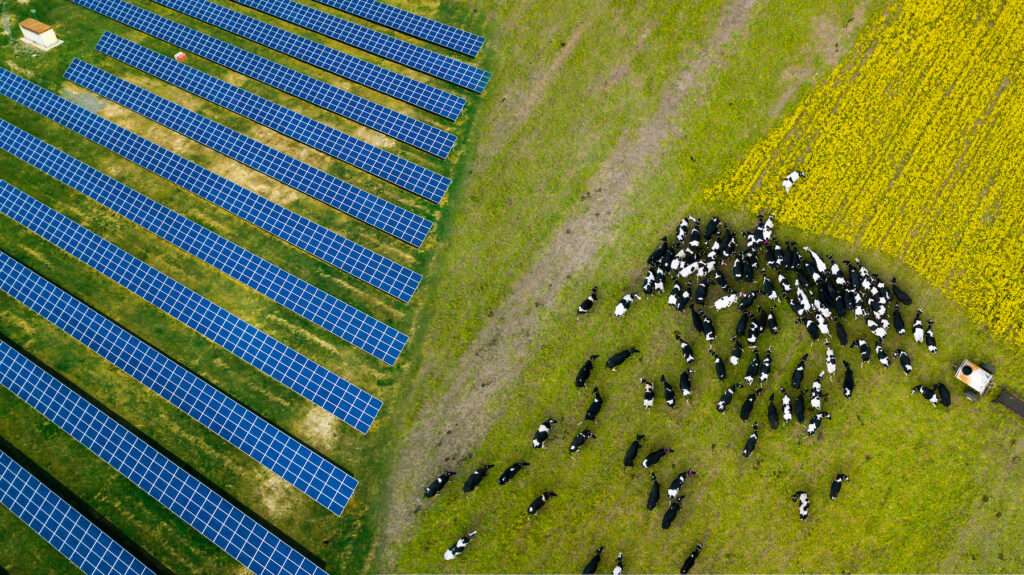Income from farm diversification on the rise, survey finds
27th October 2023
UK farmers’ income from diversification has risen to 13% of turnover in 2023, according to an NFU Mutual survey.

Across the UK, 34% of farmers now run a diversified business, up 6% since 2018, and income has risen by 1%, to 13% of turnover.
This is according to NFU Mutual’s annual diversification survey.
It shows a continuing trend of farmers diversifying outside traditional agricultural activities to secure extra income as EU legacy Basic Payment Scheme (BPS) support is phased out.
English farmers have the highest proportion of diversification enterprises at 41%, followed by 38% of Welsh farmers and 27% of Scottish farmers. Only 15% of Northern Ireland farmers surveyed had run a diversification scheme.
Renewable energy is the most popular diversification, with 6% of UK farmers operating schemes such as solar power, wind turbines or anaerobic digesters.
Property letting and providing holiday accommodation come in joint second place at 5% each, followed by livery/equestrian businesses and caravan/camping, (both 4%) and farm shops at 3%.
The survey also found the number of existing farms undertaking agricultural contracting was up 7% to 22%, with farmers looking to capitalise on their machinery and equipment.
The impact of higher interest rates and the cost of living crisis was reflected in a three-fold jump in the percentage of farmers already running diversifications who expected the income they produced would fall over the next five years.
The tough economic climate may also be responsible for a slight fall in the percentage of farmers considering a diversification scheme – down 1% to 15%.
However, many farmers remain confident in the sustainability of their diversifications, with 37% (the same percentage as in 2022) expecting returns to increase over the next five years.
Be cautious about new diversification schemes
Chris Walsh, NFU Mutual farm specialist, said: “For many farmers supplementing the farming income is essential to ensure long-term sustainability – so we’re very pleased to see that well over a third of farmers running diversified businesses expect their returns to increase.
“Farmers are putting great businesses in place which will help protect the long-term future of their farms. Many are also providing jobs, both for members of farming families and for local people as well, enabling the public to enjoy new aspects of our fantastic countryside – a win-win.”
To give farmers inspiration, NFU Mutual has showcased a range of diversification success in its new diversification hub.
However, Mr Walsh stressed that higher interest rates, rising prices and labour shortages make it more important than ever to cost any planned scheme in minute detail before taking the plunge.
“Given the challenges facing businesses in every sector, caution is prudent in the current economic climate. To help farmers gauge the feasibility of their ideas – whether it’s for luxury glamping, an ice cream business, or letting out buildings for commercial or domestic use, we have a developed a Diversification Hub with a wealth of information.
“It’s important to recognise that diversification isn’t for every farm. If you haven’t got a suitable site, finance and the resource to run another business alongside your farm it may well not be for you. I know a good number of farmers who have looked at all the options to boost their farm incomes and have taken the view that their best option is to put all their energy and investing into developing farming activities.”
He added that it’s vital for farmers to seek expert advice on the inheritance tax implications of running a diversification scheme.
For more information including case studies on successful diversification schemes and advice on insurance and risk management visit NFU Mutual’s new diversification hub at: nfumutual.co.uk/farmingdiversification
NFU Mutual diversification checklist:
- Evaluate whether you have the skills, resources and commitment to make diversification work for you
- Thoroughly review your existing farm business and identifying your strengths and areas where you could add value to your existing model
- Make a full and frank assessment of your assets – including people, land, location and buildings
- Thoroughly research the market, local demand, and existing competition for your proposed diversification
- Work closely with planners and highway authorities to avoid problems when your plans are advanced
- Cost out plans in detail and include contingency funds to help absorb future price and interest rate increases
- Research the likely availability of local workers – often a challenge for hospitality or retail diversifications in remote locations
- Consider health and safety issues at planning stage to avoid having to make expensive changes later on.
